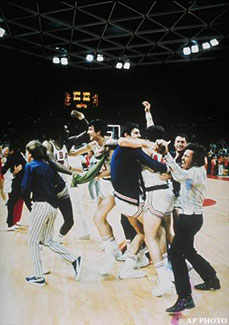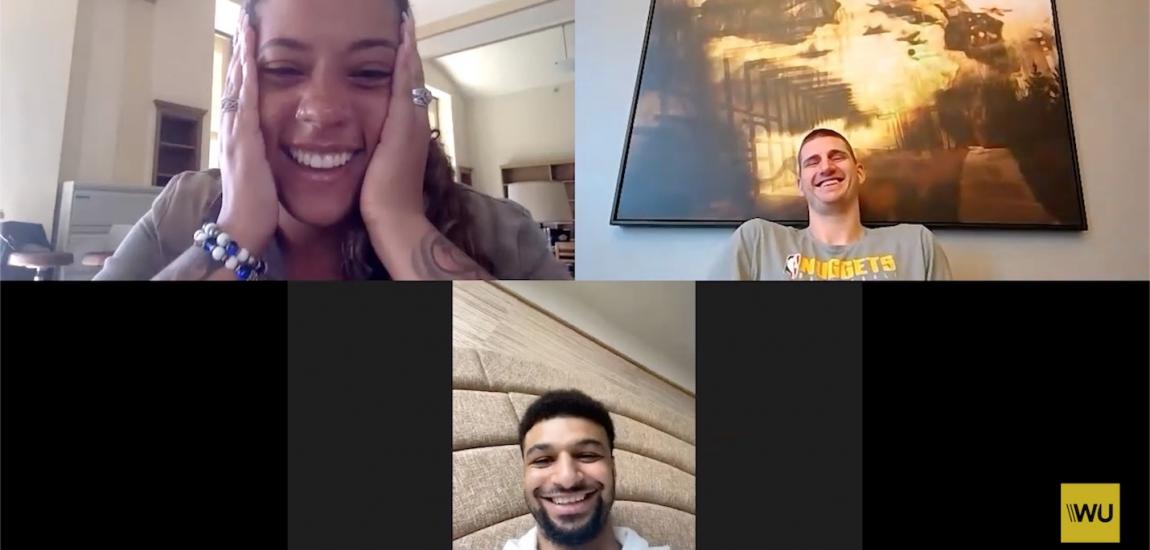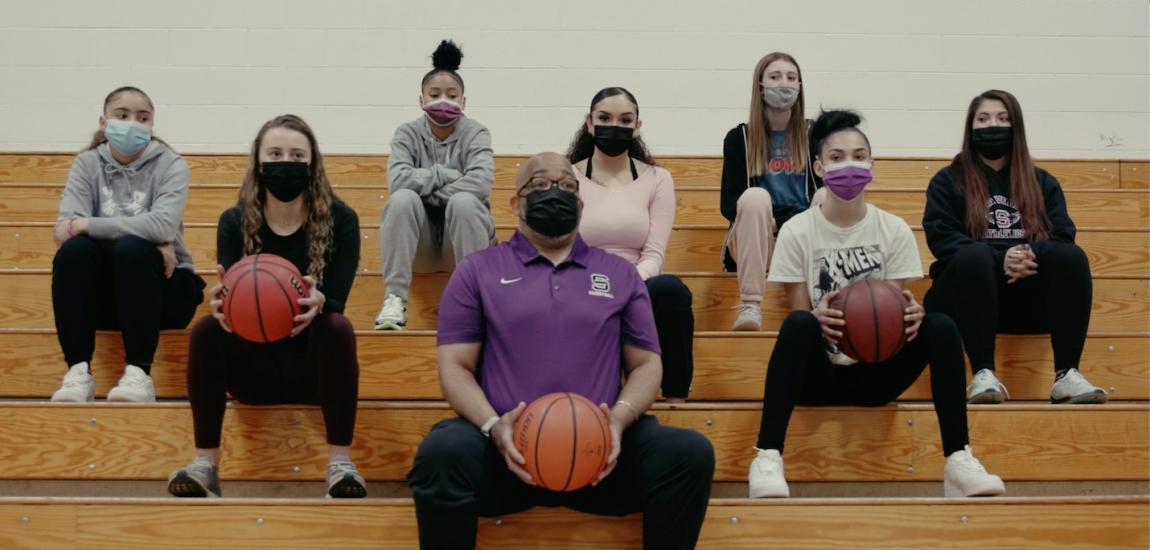Forty years after the biggest controversy in the history of Olympic basketball, one of the U.S. players has an idea to finally settle the issue.
The American team felt cheated after a bizarre sequence in the final three seconds allowed the Soviet Union to win the gold-medal game 51-50. The U.S. players always refused to accept their silver medals because they said they had earned gold, only to be robbed by Olympic officials.

Now Tom McMillen, a center on the U.S. team, is proposing that the IOC award the Americans with dual gold medals, along with an additional olive branch.
"If the members of the Soviet team agree to the awarding of dual gold medals to our team and the IOC approves, the U.S. team will donate our medals, worth a great deal as sports memorabilia, to a Russian charity for orphaned children," McMillen wrote in a guest column for The Daily Beast. "With the help of other donors, we could raise millions of dollars to help build a bridge between our nations. This gesture could bring us closer together -- and could show that, even in a world increasingly marked by partisan strife, sportsmanship and good will can sometimes trump geopolitics."
In 1972, the Soviets took control early in the game, but the U.S. rallied and went ahead 50-49 when Doug Collins made two free throws with three seconds left. The Soviets inbounded the ball and missed a desperation shot. The buzzer sounded and the U.S. celebrated.
But then officials allowed the Soviets to attempt another inbounds play with one second left. They didn't score, the buzzer sounded and the U.S. celebrated again.
Chaos ensued as officials then put three seconds back on the clock, and this time the Soviets executed a long pass down the court and scored at the buzzer to win 51-50.
McMillen, who served in Congress after an 11-year career in the NBA, developed the idea of dual golds 10 years ago after the figure-skating scandal at the Winter Olympics in Salt Lake City. The IOC awarded duplicate gold medals to Jamie Salé and David Pelletier of Canada after a scandal, involving a crooked judge, erupted.
"The IOC decided that the pair came in second not because of their performance but because a judge had been unduly pressured by one of the sport’s governing bodies," McMillen wrote and cited that the end of the U.S.-Soviet basketball game also involved "unauthorized intervention."
McMillen said his U.S. teammates are on board with his proposal. But the IOC and Soviet players might not see it the same way.
"I believed then -- and believe now -- the U.S. team had victory taken away from us, that our basketball game ended up as proxy war between two superpowers," McMillen wrote. "Forty years later, the Berlin Wall is down, the Cold War has ended, the borders in the former Soviet bloc countries are open. Relations between the U.S. and the former Soviet Union are not always smooth, but our political détente holds. Perhaps it’s time for easing of tensions about that controversial game as well."





